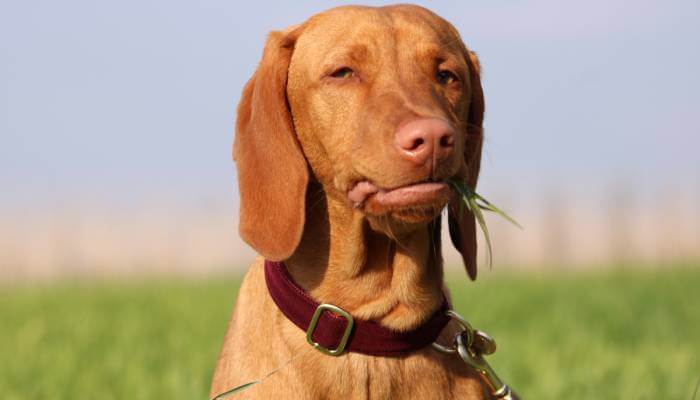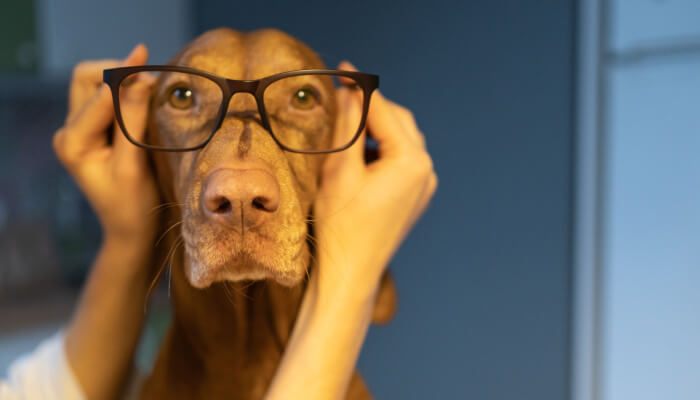With the outrageous popularity of Vizslas and increasing interest to keep this dog as a pet, so more and more people are taking in Vizsla puppies. As with any other breed, you have to be aware of the vaccinations for vizsla puppies to live a healthy life.
Vaccinations are essential for Vizslas because they prevent them from many diseases. Vizsla puppies needs include a combination vaccine for distemper, hepatitis, leptospirosis, and parainfluenza virus. Some of the other vaccinations your dog will need are rabies vaccination shots every three years starting from one year old.
Vaccinating is not an easy task, but it becomes easier when you know all about it. So after you get your Vizsla puppy, the next thing that you should do is take it to a veterinarian for vaccinations. The vet checks if your dog needs any other unique shots or medications and then gives them all in one go so that they grow up healthy without getting sick frequently.
In this blog post, we will talk about all of the different vaccinations that Vizsla puppies and dogs might need, including when you can safely bring your puppy outside!
Vaccinations For Vizsla Puppies And Dogs
Vizsla is a very playful dog. As such, it loves to play with other dogs and people as well. As a result, Vizsla will need vaccines to ensure that they do not contract any diseases from other animals or people. There are numerous vaccinations that the Vizsla needs for their health, so you must be aware of them.
I will list out all the vaccinations with proper explanation below:
Rabies Vaccine
The Vizsla needs to have a rabies vaccine before they are 18 months old. It will ensure that the dog is not vulnerable to any diseases that may cause their death. Vizsla can contract rabies from wild animals and other dogs. So you need to make sure your pet does not come in contact with these sources.
Distemper Vaccine
The Vizsla needs a distemper vaccine by 12 weeks of age. After that, you should administer this vaccine again at 16 weeks and then annually for the rest of their lives. If you fail to deal with this problem, this disease can cause respiratory problems, loss of appetite, vomiting, and diarrhea, among other symptoms. There are two different types of this vaccine that are available: VetVac-L and DistemperV.
Leptospirosis Vaccine
The vet administers this vaccine usually with the distemper vaccine at 16 weeks. But they can also give this vaccine on its own earlier if need be. This disease spreads through contact with urine from infected animals such as rats or raccoons. Water and food sources can also contract leptospirosis. So it is essential to avoid contact with these sources if possible.
Lyme Vaccine
This vaccine will protect your Vizsla against Lyme disease when they are 14 weeks old. But it would be best if you also gave this vaccine annually for the rest of their lives to ensure maximum protection. It is because ticks contract Lyme disease through their bites as well.
Bordetella Vaccine
Your Vizsla will need this vaccine by 12 weeks of age but should receive it again at 16 weeks old and then annually for the rest of its life. This disease causes respiratory problems in your pet, such as coughing, sneezing, and pneumonia. Therefore, the vet gives this vaccination in conjunction with the Leptospirosis vaccine.
Feline Flu Vaccine
Your Vizsla will suffer from this disease if they come in contact with a cat that has this virus. The Vizsla will need to have the FIV vaccine by 12 weeks of age but should also receive it again at 16 weeks and then annually for the rest of its life. It will protect your pet from contracting Feline Flu.
Parainfluenza Vaccine
Your Vizsla needs this vaccine by 12 weeks to ensure that they are not vulnerable to Parainfluenza disease, which can cause respiratory problems and sneeze. After that, you should give it again at 16 weeks old, then annually for the rest of their life.
Infectious Canine Hepatitis
This disease can cause liver failure in your Vizsla if they contract it. The virus causing this usually transmits through contact with dog saliva or urine. So you need to make sure you are careful with your pet. The Vizsla will need this vaccination by 12 weeks of age and then annually for the rest of their life.
Am I Legally Required To Have My Vizsla Vaccinated?
It is not illegal for you NOT to vaccinate your Vizsla, but they will need the rabies vaccine by law if they are 12 weeks old or older.
The law states that you need to vaccinate your Vizsla against rabies. Distemper, leptospirosis, and Lyme also require proper vaccinations by la. It is not illegal in any way for you not to have these vaccinations administered or if you choose a different schedule than the one prescribed by law.
What Is The Vaccination Schedule For A Vizsla Puppy?
Your pup should receive four vaccinations in total at 12, 16, 20, and 24 weeks old. It is essential because your puppy does not have a complete immune system at this time and is more susceptible to disease.
By then, the puppy’s immune system should be strong enough to handle vaccine injection. You must give the next vaccination at six months of age and then yearly after that point in time.
Why Do Vizsla Puppies And Dogs Need To Have So Many Vaccinations?
The thing about dogs, tiny breeds such as the Vizsla, is that they can contract diseases from other animals or humans quickly. Since their immune systems are not as strong, they need vaccination more often to keep them safe from all the things that could harm them.
When Can I Safely Bring My Vizsla Puppy Outside?
After vaccinating for rabies and distemper, it is safe for your puppy to go outside. But it would be best if you kept Vizslas on a leash when going out.
Which Vaccinations Does An Adult Vizsla Need To Have?
An adult vizsla will need to have the vaccination for rabies, distemper, and leptospirosis. They should also receive their yearly vaccinations against Lyme disease at least one time every year. You must administer the vaccines in the correct order and proper time to ensure maximum protection.
What Are The Benefits Of Vaccinating My Vizsla?
Vaccinations are necessary for your pet to stay healthy. They protect from diseases that can cause a lot of problems in their health and well-being. These vaccinations will help them live longer, healthier lives and have improved quality of life.
- Vaccines protect from diseases that could cause a lot of health problems.
- Vaccinating your dog will help them live longer, healthier lives and have improved quality of life.
- Your pup’s health and safety need to bring them outside at least once a day when they are 12 weeks old.
- The benefits of vaccinating your pet include living longer, healthier lives and improving quality of life.
Adverse Reactions To Vaccines In Vizsla
It is essential to administer all of these vaccines on time and correctly to ensure maximal protection. But there may be side effects or adverse reactions from them. Your vet will go over what type of reaction your pet may have and how to deal with it.
It Is Important To Note That All Vaccinations Have The Potential For Adverse Reactions.
There is a chance that your pet could have some adverse reactions to the vaccines, such as vomiting, diarrhea, and fever. These symptoms are usually mild and should go away without any long-term effects on their health. However, if they do not get better or are more severe, take them to the vet right away.
It mainly happens with the Rabies vaccine because it is a live virus. The most common side effects are lethargy and loss of appetite. Usually, this should only last for 24 hours after the administration of the vaccine.
Conclusion
In conclusion, it is essential to have your puppy vaccinated against rabies and other diseases. Vaccinating your dog will help them live longer, healthier lives and have improved quality of life.



